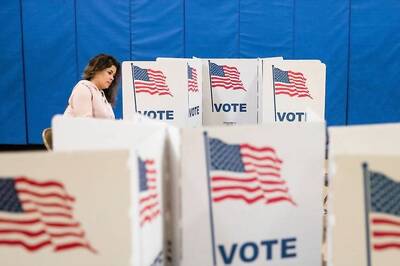
views
Smartphones are said to be a technological artefact of our time, serving a multitude of functions ranging from making phone calls to being a factor of social change. The use of smartphones has become so pervasive in our lives that we find it hard to even imagine a life without it, much less actually keep away from it. Smartphones are not merely convenient tools that bring us the world at our fingertips, but also a catalyst of social change in society.
Status and prestige are highly desirable in society; such has been the case regardless of the era or social circumstances. While wealth, educational qualifications and fame are routes to achieving status, the role of smartphones in generating and maintaining status quo systems is hardly recognised. Adolescent phone addiction is a burning issue, but looking from a social and developmental lens, it is a symbol of the freedom one attains in their coming of age years. At what age did someone receive their first smartphone, at what age did they make their first Instagram account, whether it was an Android or an iPhone, questions like these might sound trivial and a waste of time for the better majority of us. However, for adolescents who have freshly stepped into the realm beyond that of childhood, a good part of their identity and esteem is attached to smartphones. Being given a smartphone of their own helps materialise their sense of newfound responsibility and independence. Not having to wait till either of our parents get free from their duties just so we can play our favourite games or surf the net feels like a massive achievement.
Consequently, the sooner an adolescent is bestowed with a phone, the higher his or her status amongst friend circles and to some extent, all others the same age as them. Speaking in Gen-Z terms, it provides a boost in self-esteem as a token of how “chill” or “cool” one’s parents are. Furthermore, obsession with the model, colour, cover design, putting stickers, pop sockets, phone chains and the like are material reflections of the owner’s personality and standards of aesthetic taste.
Adolescents are quite the enthusiastic bunch, but even as we transition into adulthood and beyond, smartphones continue to be our most intimate partner. With the ease of access and operation of social media apps such as Instagram and Twitter, building a niche space comprising followers, loyalists and haters has become not only easy but also a necessity of sorts. The virtual projections of ourselves invite a plethora of reactions, the ripples of which are felt in real offline lives as well. It could be positive or negative, depending on how the opportunities offered by the smartphone are leveraged, but a definitive change in social interest dynamics and marketing cannot be ignored.
The concept of ‘social media influencers’ or ‘YouTubers’ as careers, are still novel, but are good examples of judicious use of the smartphone. On the opposite end of the spectrum though, one can find online marshes full of disruptive and hate-mongering trolls. Surely, often, a smartphone is nothing better than a poor and pathetic pastime to engage in cancel culture, in hopes to attract attention and elevate one’s virtual status and recognition. Protests are a crucial agent of social change and hold the potential to change certain societal structures and functions for the better. However, the ever-expanding online cancel culture has begun to extend onto the streets, with the mobile phone playing an important role in the mass dissemination of unwarranted hate speech and organised backlash protests that serve no one, apart from those who get a thrill out of political upheaval. Not only has this changed the dynamics of virtual interaction amongst people from varying regions and backgrounds, but also the way we consume and market products. On one hand, “cookies” and tracking software help us get personalised and predictive need-based advertisements for products, on the other hand, “cookies” collect and store information about our online usage to create virtual profiles. The convenience of technology comes at the cost of safety and an illusion of privacy.
Economic and development schemes may or may not be fruitful in bridging the gap between the poor and the rich in a given country, but the possession and use of phones has evidently served to bridge the gap in our understanding of what it means to be poor or rich. Moreover, it is increasingly blurring the line between the socially integrated and socially isolated, with one becoming the other, depending on how they use the phone and the numerous features and opportunities provided by it. There is no shortage of observational proof all around us, even those with occupations such as drivers, house help or security guards, possess and know how to operate smartphones. Unfortunately, there has also been a sharp rise in online and phone-related scams, which calls for cyber safety programs to be implemented, not only in urban but also in rural areas. There is a stark difference between using a phone and utilising it judiciously.
The phone is but an accessory we constantly wear on ourselves, even a new organ perhaps, since it seems to have taken up a spot in our lives, in the foundation levels of Maslow’s Needs Hierarchy. The “Needs Hierarchy” is a diagrammatic representation of human needs, ranging from the most basic bodily needs at the base levels to higher-order needs such as self-actualisation and transcendence at the very top. Effectively speaking, a mobile phone is what we make of it; a double-edged sword that can open up multiple opportunities for us, but is also a hindrance that can lead us astray. The key is restraint. Excess of anything is harmful and a smartphone is no different. If used with restraint, a smartphone is a great accessory and our window to the world. If used indiscriminately, it turns into an addiction and addictions are rarely beneficial.
Yashee Jha, a multi-faceted student, is an avid commentator on various topical issues. Views expressed are personal.




















Comments
0 comment